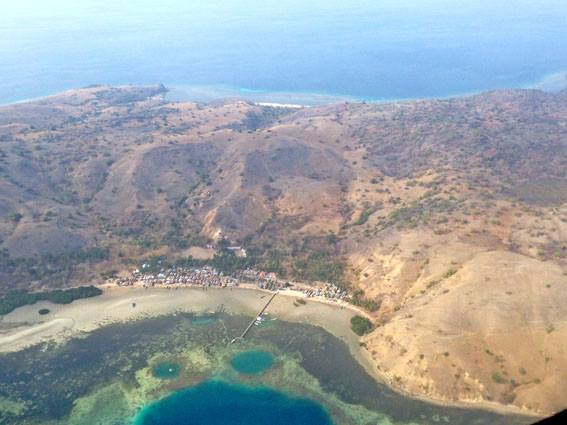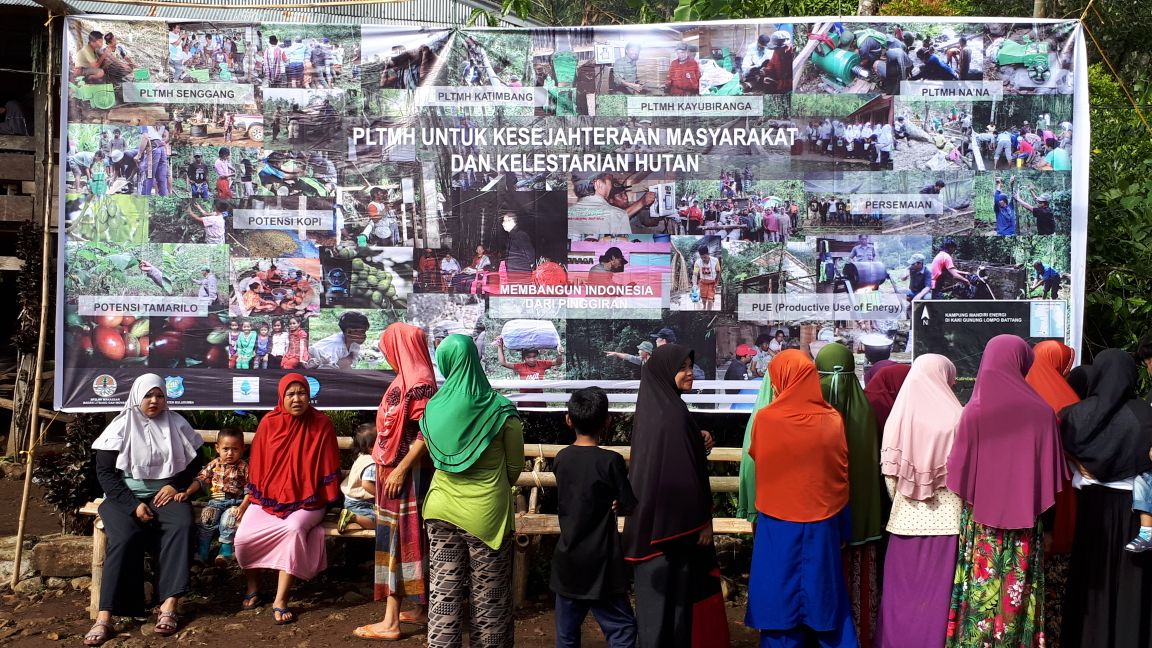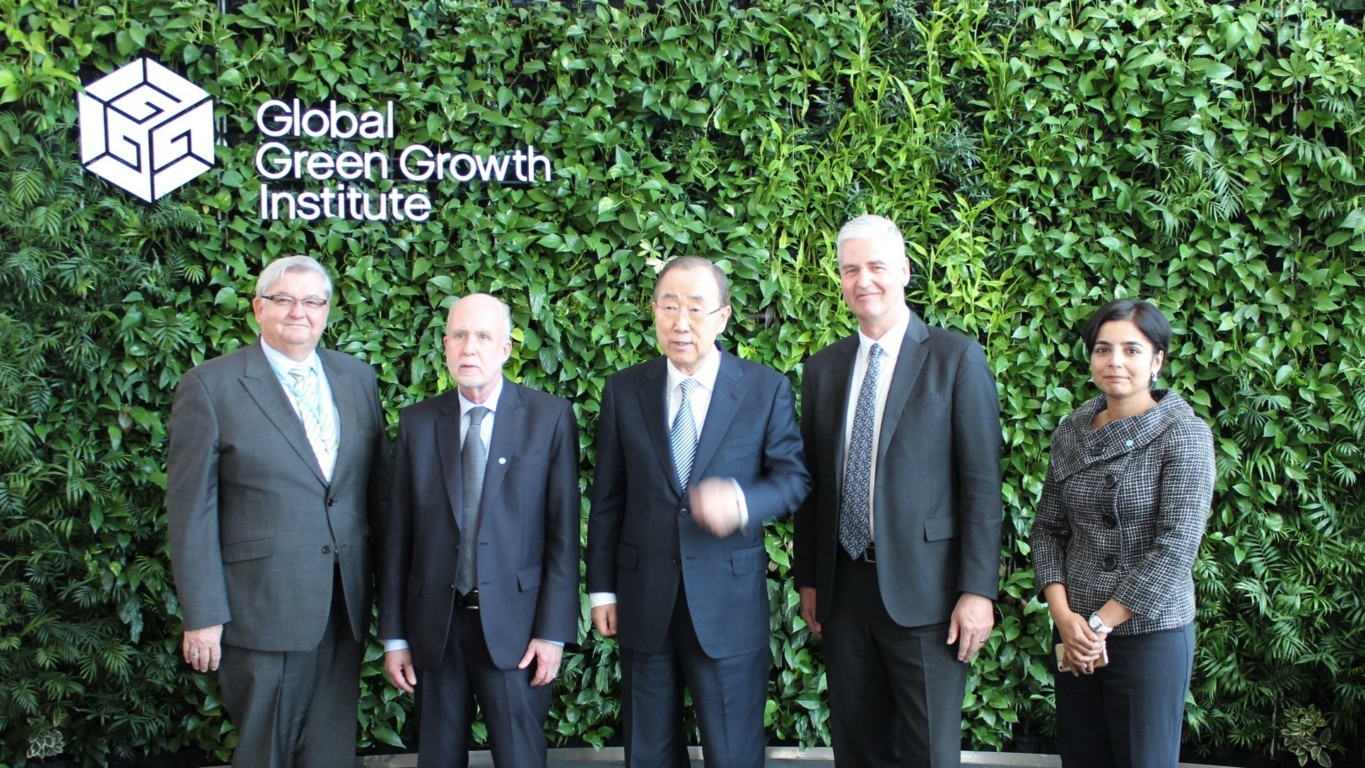NTT: Paving the Path to Green Growth and Bringing Renewable Energy to Life
The Provincial Government of Nusa Tenggara Timur (NTT) realizes that NTT is one of those areas where there is little or no electrical grid infrastructure. NTT has an electrification rate of 59%, which is extremely low compared to the national average of 93% as per June 2017.
Furthermore, their current energy mix is dominated by diesel power providing about 86% of the region’s energy demand, while in fact, NTT can unlock the potential of high solar energy availability from regular irradiation of over 50 percent for 8 hours per day and from a long dry season lasting 9 months per year. Therefore, the government decides to address the challenges of electrification and to foster sustainable advancement of energy industry in NTT by promoting solar photovoltaic (solar PV) development in the province.
Eight strategic locations were identified in an agreement between NTT government with PT Perusahaan Listrik Negara (PLN) to develop demonstration projects. NTT Governor, Frans Lebu Raya, directs the project development on his vision to reduce diesel consumption and CO2 emission in the province and reduce operational costs for PLN.
Furthermore, one of the vital requirements to meet the unmet demand of around 32 percent households in NTT is the ability to provide replication opportunities by building acceptance of solar PV hybrid solutions, including acknowledging key risks at development stage in order to reduce subsequent project risks and to attract more investment in renewable power generation.
The Global Green Growth Institute (GGGI) was assigned to design the project and prove the technical as well as financial viability for this development. Focusing on a hybrid model that combines existing traditional diesel-based power grid with solar PV, the key result of pre-feasibility analysis conducted by GGGI indicates that the hybrid generation facilities with energy storage systems in all eight sites would be able to reduce diesel consumption by 236 million liters or the equivalent to a total reduction of 549,300 CO2 emissions over 20 years. This also translates to potential savings for PLN of approximately USD 125 million over 20 years.
“NTT’s low electrification rate drives us to find a solution to meet the region’s demands. We can no longer rely on traditional means of power. There is an opportunity to fill these gaps with RE from a reliable source, like solar,” said Assistant II of NTT Regional Secretariat, Alexander Sena. Alexander added, “A pre-feasibility study conducted by GGGI demonstrates that a hybrid solar PV project is financially feasible. Private sector investment is critical for implementation of the projects.”
The governor of NTT also showed his appreciation in a letter to GGGI, in which he recommended GGGI to engage the private sector, which is strategic for the project implementation. Accordingly, GGGI opened Expression of Interest to seek private sector interest to take up the study for further development. A consortium of Engie Asia Pacific Co. Ltd. and PT Arya Watala Capital were selected in the final process.
On February 21, 2018, the Government of NTT officially provided access to the consortium to the pre-feasibility study report in a handover ceremony at Hotel JS Luwansa, Jakarta. The event serves as an important milestone, marking successful private sector engagement and green investment to develop hybrid solar PV projects in NTT.
GGGI Indonesia Country Representative, Marcel Silvius said, “I am happy that with this project we have been able to fulfil the aim of GGGI Indonesia to bring the project to a bankable phase and ensure that it is taken up by investors for further development beyond the pre-feasibility study and business case stage.”
The handover signifies the beginning of a promising renewable energy hybrid model to reduce diesel consumption, which could possibly be replicated and scaled up in the future. Following the handover, Engie and Watala plan to conduct a full feasibility study and join the bid by PLN to execute the actual development of the hybrid solar PV project in NTT.
“ENGIE’s vision to decarbonize, digitalize and decentralize is aligned with the objective of the solar PV project in NTT. We are delighted to collaborate with Watala to provide clean energy for the people of NTT,” said ENGIE Chief Representative for Indonesia, Johan De Saeger.
CEO of Watala, Aria Witoelar, also underlined the importance of harvesting the sun’s energy and added, “We should stop burning diesel fuel for electricity during daytime when the sun shining.”
With the world expected to shift much of its energy portfolio toward one with reasonably low carbon emissions to combat climate change, it is envisioned that low-carbon future will be dominated by a mix of various energy options, some combining existing traditional systems with a selection of renewable sources. Thus the Governor of NTT hopes that the successful implementation of this project will not only create local jobs but also encourage the workforce to learn advance technology thereby improving the overall quality of the province’s human resources. The project is also hoped to drive more green investment and pave the path to sustainable green growth in the province.




